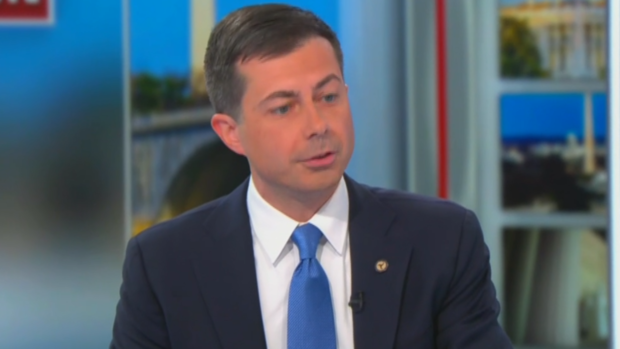Transportation Secretary Pete Buttigieg on Sunday defended President Joe Biden’s economic policies, saying the Biden administration’s “top economic priority” is fighting inflation amid rising costs in food, housing and health care.
But Buttigieg also touted the administration’s COVID-19 recovery package, which he credited with having “rescued the economy” and said without it, “we would not have had the 10 million jobs created with this president with the lowest unemployment numbers in history.”
“Look, I don’t think anybody could argue that, for example, our unemplyment numbers are anything but strong as hell,” he said later in the interview.
But more than two-thirds of registered U.S. voters say the Biden administration could be doing more to address inflation and the price increases that have come with it, according to the latest CBS News Battleground Tracker poll, which pointed to slowing momentum among Democratic congressional candidates after months of steady advances. Republicans’ lead in the race for control of the U.S. House appeared to stabilize as a result, the poll suggested.
CBS News
On “Face the Nation,” Buttigieg called inflation a “global phenomenon” that U.S. officials are working to combat at home. The Transportation Department head reiterated Mr. Biden’s recent comment that the economy is “strong as hell” and said the $1.9 trillion economic stimulus package passed last year created growth in key areas and significantly boosted employment numbers. This comes as the bill’s effectiveness faces some scrutiny from Americans who have noted that inflation took off following its passage.
“A majority of inflation is not attributable to fiscal policy,” said Buttigieg.
A record 6.4 million jobs were added to the economy during Mr. Biden’s first year in office, after a historic pattern of job losses was observed across the country during the earlier part of the COVID-19 pandemic. Rising employment numbers continued this year, and one of the latest reports from the Labor Department showed employers added 263,000 jobs this past September, as the unemployment rate fell to a 50-year low of 3.5%. Still, it marked the slowest hiring month in a year and a half, and came amid slightly lower labor participation than previous months as data shows a downturn in the number of people who are either working or seeking work nationwide.
